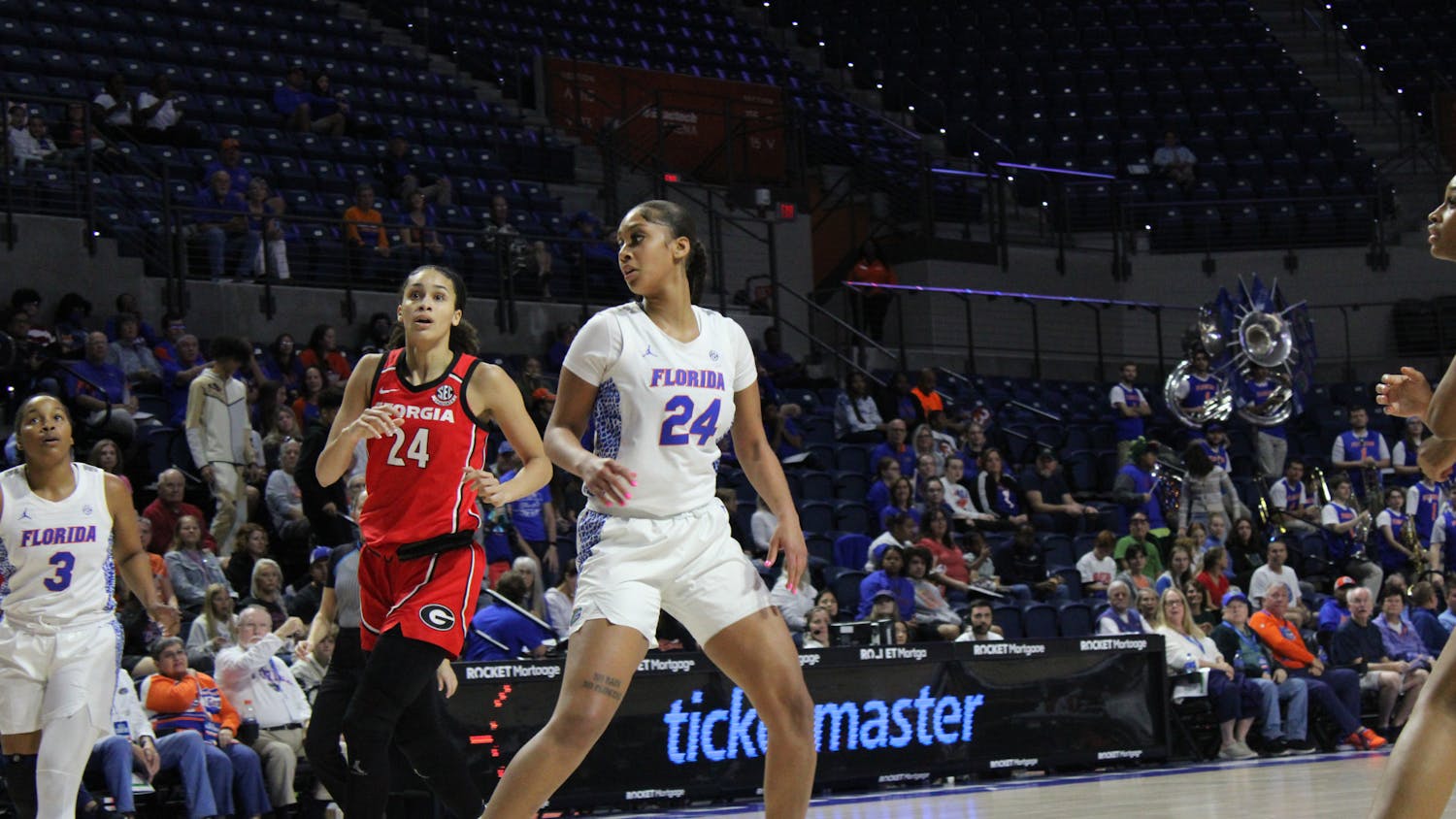I remember the first time I went to UF in the winter of my senior year in high school. The red brick looked almost authentically collegiate Gothic. I remember the feeling of life beginning, one I tried to recapture during Preview weekend while driving in the snow-white blur of rain on I-75. I laughed at the billboards erected by the autochthons of my new home, who apparently still feared they might be aborted, performatively reading Schopenhauer in the stadium.
When I came to UF, I carried vague dreams of stepping into my real, authentic, Criterion-informed self. I was sure college would be a rebuke to the frustration and idiocy of high school, to the classrooms of 90 percent sleeping children with 25 percent writing proficiency rates.
As you may be able to tell by my tone, I was disappointed. UF felt like a health club with an unusually nice library. Living in Midtown, I heard the shrieks of future insurance salesmen under my window as they trailed away from Cantina. Living downtown, I saw anencephalic hipsters and pseudo-punks perch on gross stools, staring in aphasic silence. I never found whatever mythic "intellectual" community I expected; just man-children saying, "Wow, you’re Russian? That’s sick. I’m a Stalinist!"
Thinking about online education — or specifically, UF’s cynical, mercenary, transparently cost-cutting Pathway to Campus Enrollment (PaCE) program — I’ve wondered what is special about university. It must be the fact of being somewhere, thrown into three hours a week of contact with some stranger who challenges you and prods you, with peers who anger and impress you; from physical and personal alienation, from temporary community in a state of suburban sprawl and faceless highway. But most of my classes have been awful.
In my Victorian novel class, kids would pull up SparkNotes on their laptops every single Wednesday before the quiz. In advanced poetry workshop, a student scoffed that she would never read Milton. No male English major looked up what magical realism meant before opening his mouth. In German, a student bitching about her test grade couldn’t remember how to say Thursday. My semi-sentient calculus and chemistry peers all expected to be physicians. In my French senior seminar, a girl couldn’t resist (darting her eyes around) clicking on a Thought Catalog "hottest sex stories" piece.
In a current history course, the bushy-tailed student to my left is still on Facebook, bright and early in the front row. In another, I’m impressed by students’ rapt attention as they stream football. I’m tickled particularly pink by the students in my Holocaust studies courses that don’t give a shit.
It’s not just their fault. Many of my professors have made laughably scanty effort, content to drill on rather than launch discussions and to recite PowerPoints rather than synthesize. I recall an advanced Spanish literature seminar with multiple choice questions like: Which of the following choices is not a theme of such-and-such story? Are you kidding me?
And so the library has spiraled into a hellhole where girls tutor their dumb boyfriends about what French New Wave is, guys pop Addy and upperclassmen ask librarians how to check out a book. The other week, some kids tossed the pigskin in the vestibule (#itsucksuf). With every dumb hashtag of the UF Rising campaign, UF seems to put more and more emphasis on community, sports and tech oriented measures of being a good Gator. Hence the kids I heard on a bus proclaim, "Literature. God. That must be so boring," and, "I’m an engineer. We have to take all the maths: Calc 1, 2, and 3." I cannot imagine what it must be like to live each day under the burden of knowing all the maths.
So I’d like to say that with online education we are digging our own graves, and turning school into a truly perfunctory streaming center for information that may as well be torrented.
I’d like to say that by prioritizing portable career skills we forget the place of culture, and tacitly endorse the utilitarian logic of Marco Rubio’s "We need more welders." He strikes me as a real Gator. I’d like to say it’s ill-conceived that the UF Rising materials only talk about diabetes, orange crops and returns on investment. But I’m wondering how many of my fellow students currently see the Bachelor’s degree as anything more than a route to middle-class respectability.
Ann Manov is a UF French, English and Spanish senior. Her column appears on Mondays.





